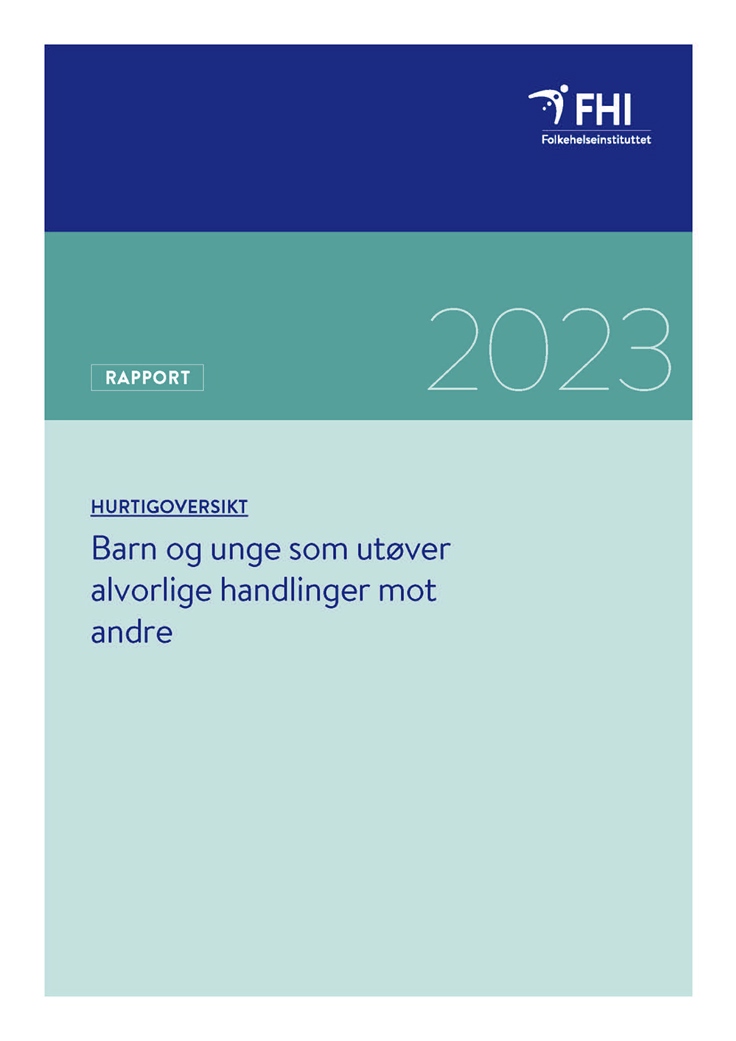Children and young people who perpetrate serious acts towards others: a rapid review
Mapping review
|Published
The purpose of this rapid review was to map research on the effects of and experiences with interventions for children and young people who commit serious acts against others.
Key message
Children and young people who have perpetrated, or may perpetrate, serious acts towards others have complex needs for care and treatment, which can be difficult to actualize. Many also need long-term, specialized treatment.
The purpose of this rapid review was to map research on the effects of and experiences with interventions for children and young people who commit serious acts against others. We aimed to include studies published during the last decade, and conducted in a Nordic country, the Netherlands, or the UK. To identify relevant studies, we searched in international databases, and we used both manual and machine learning processes to screen studies against our inclusion criteria.
We included 28 studies (presented in 33 publications). Most studies were from the Netherlands or the UK. The great majority of the studies addressed effect of an intervention, while six presented experiences with an intervention. There were nine types of interventions: Multisystemic therapy, institution-specific programs, Aggression Replacement Therapy, Non-Violent Resistance, MultifunC, other programs with a cognitive or behavioral approach, interdisciplinary municipal programs, Treatment Foster Care Oregon, and substance abuse treatment. The outcomes were largely related to recidivism and serious acts against others, mainly physical violence. Many of the interventions had mixed results. The results pointed to several treatment barriers, such as low implementation quality and low program integrity.
It would be helpful to have a more thorough assessment of the research on effects and experiences with interventions for children and young people who commit serious acts against others.


